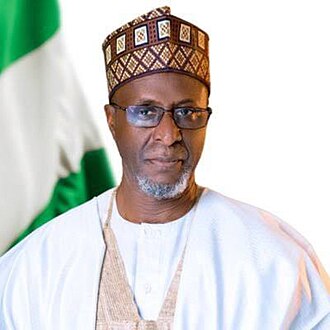Nigeria’s Federal Government, through the Ministry of Environment, has initiated significant strides in bolstering agricultural productivity and mitigating the effects of climate change in the northern region of the country. Central to these efforts is the Agro-Climatic Resilience in Semi-Arid Landscapes (ACReSAL) project, a World Bank-supported initiative designed to enhance food security and climate resilience. A substantial investment of over N12 billion (equivalent to $8,625,000 USD) has been channeled through the Community Revolving Fund Programme under the ACReSAL project. This funding has empowered nearly 10,000 beneficiaries, with a near-even split between men and women, to engage in various agricultural activities, spanning production, processing, marketing, and storage, thereby strengthening the entire agricultural value chain. Furthermore, the project has facilitated the restoration of over 178,000 hectares of degraded land across 19 northern states and the Federal Capital Territory (FCT), contributing significantly to land rejuvenation and improved ecological health.
The ACReSAL project operates as a collaborative endeavor, involving multiple sectors and levels of government. The steering committee, chaired by the Federal Ministry of Environment and co-chaired by the Ministries of Water Resources and Sanitation, and Agriculture and Food Security, ensures coordinated efforts and effective resource allocation. This multi-sectoral approach fosters synergy and maximizes the impact of interventions across various related areas. Beyond financial support, the project has provided essential agricultural tools and inputs to boost productivity and efficiency. Over 245 tractors and 1,450 hand-powered tillers have been distributed to over 56,000 farmers, dramatically reducing manual labor and enhancing farming practices. The provision of these tools contributes to increased yields and improved livelihoods for farming communities.
The project has also prioritized the distribution of critical agricultural inputs to strengthen resilience against drought and enhance overall agricultural output. Drought-resistant seedlings, organic fertilizers, solar-powered irrigation pumps, knapsack sprayers, and harvesting crates have been provided to farmers and community interest groups in several states, including Sokoto, Benue, Plateau, Kano, Kogi, Kaduna, Niger, Jigawa, Yobe, Zamfara, Adamawa, and the FCT. These resources enable farmers to adapt to changing climatic conditions and improve their farming practices, contributing to increased yields and enhanced food security. The project also recognizes the importance of protecting natural resources and combating environmental crime. Support for the National Park Service has included the provision of 11 patrol vehicles and the construction of six ranger posts across national parks. These interventions strengthen the capacity of park rangers to protect forest assets and wildlife, contributing to the preservation of biodiversity and ecosystem services.
The ACReSAL project has achieved remarkable reach, directly impacting over 1 million individuals, with women constituting nearly half of the beneficiaries. This emphasizes the project’s commitment to inclusivity and its focus on empowering women in agriculture. Furthermore, the project has indirectly benefited over 13 million people, demonstrating its broad and far-reaching influence on the socio-economic landscape of northern Nigeria. This widespread impact reflects the project’s effectiveness in addressing critical challenges related to climate change, food security, and sustainable development.
Beyond the ACReSAL project, the Federal Government is undertaking further measures to strengthen the agricultural sector and enhance data collection. A landmark agreement with the National Bureau of Statistics has been established to conduct Nigeria’s largest agricultural survey under the 50×2030 Initiative. This initiative aims to address critical agricultural data gaps, providing valuable insights for evidence-based policymaking and targeted interventions. The comprehensive survey will furnish crucial information about agricultural practices, production levels, and other relevant factors, contributing to a deeper understanding of the agricultural landscape and informing strategic planning for the sector. This data-driven approach will facilitate better decision-making and resource allocation, ultimately promoting sustainable agricultural development.
In summary, the Federal Government of Nigeria, through the ACReSAL project and other initiatives, is demonstrating a strong commitment to addressing the intertwined challenges of climate change, food security, and environmental sustainability. The substantial investment in the northern region, coupled with the provision of essential agricultural inputs and capacity-building efforts, has empowered communities and contributed to significant improvements in agricultural productivity. Furthermore, the collaborative approach, involving multiple government agencies and stakeholders, ensures coordinated action and maximizes the impact of interventions. The focus on data collection through the 50×2030 Initiative underscores the government’s commitment to evidence-based policymaking and further strengthens its efforts to build a more resilient and sustainable agricultural sector. These concerted efforts are crucial not only for enhancing food security and livelihoods in the region but also for mitigating the impacts of climate change and promoting long-term sustainable development.














